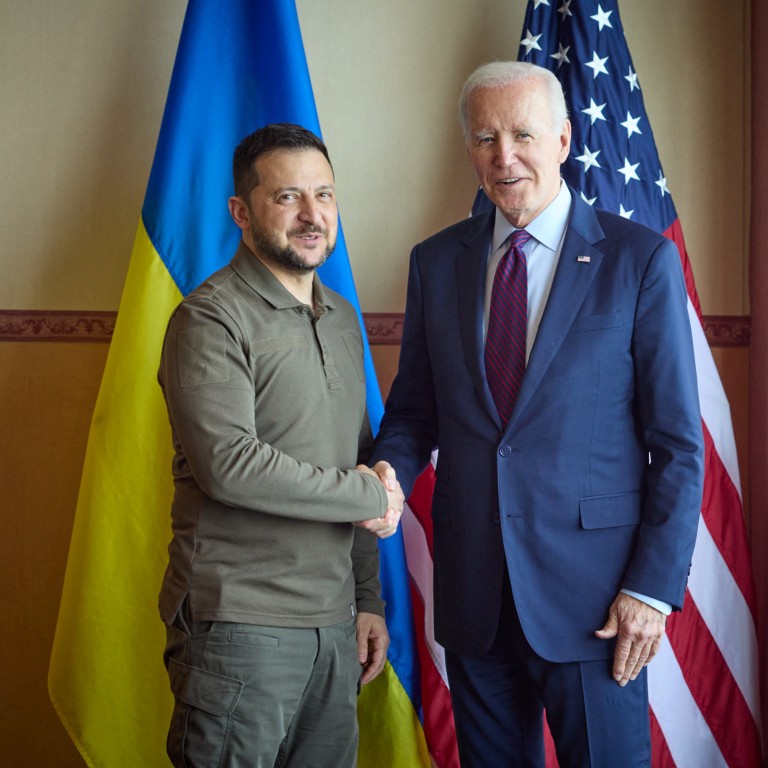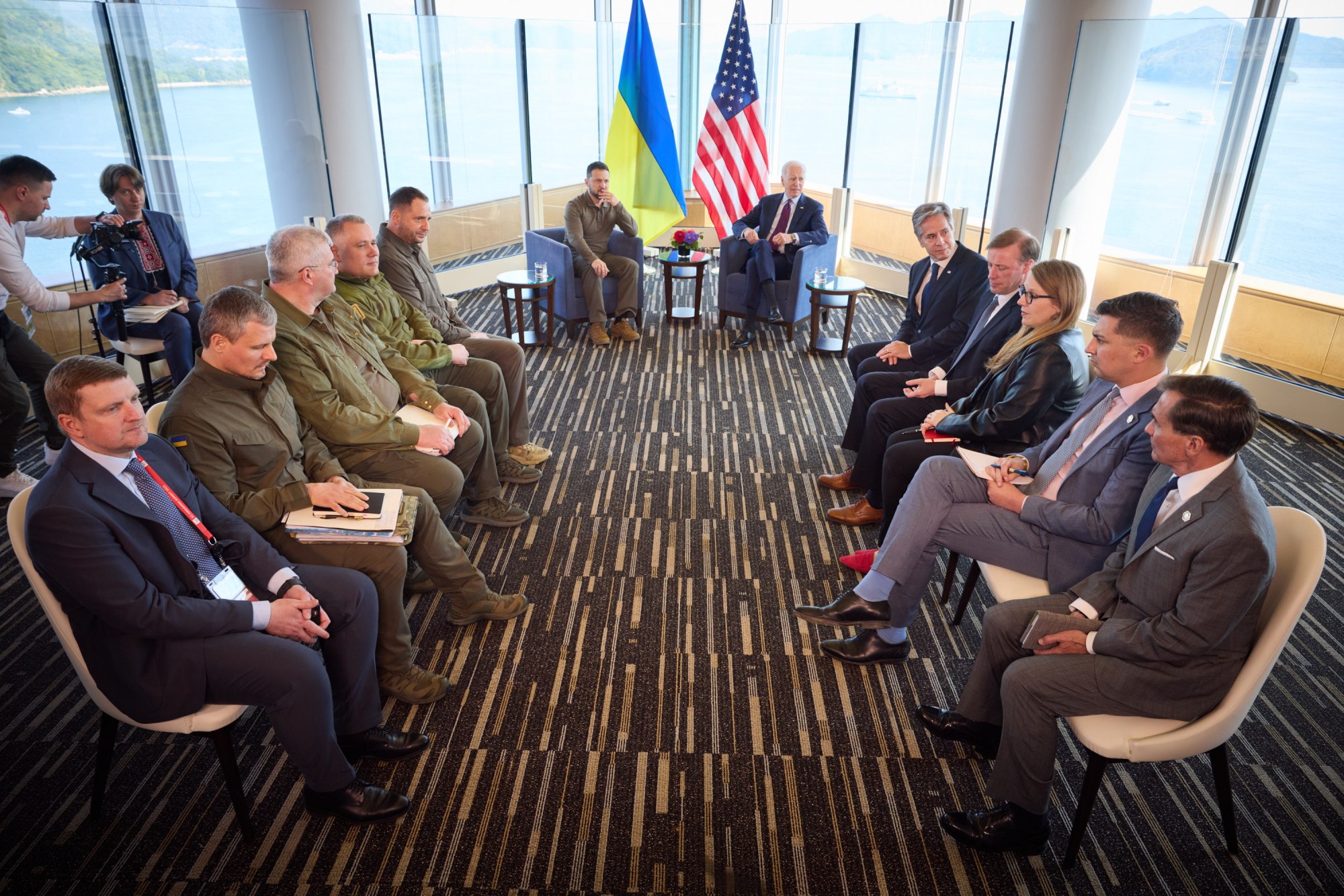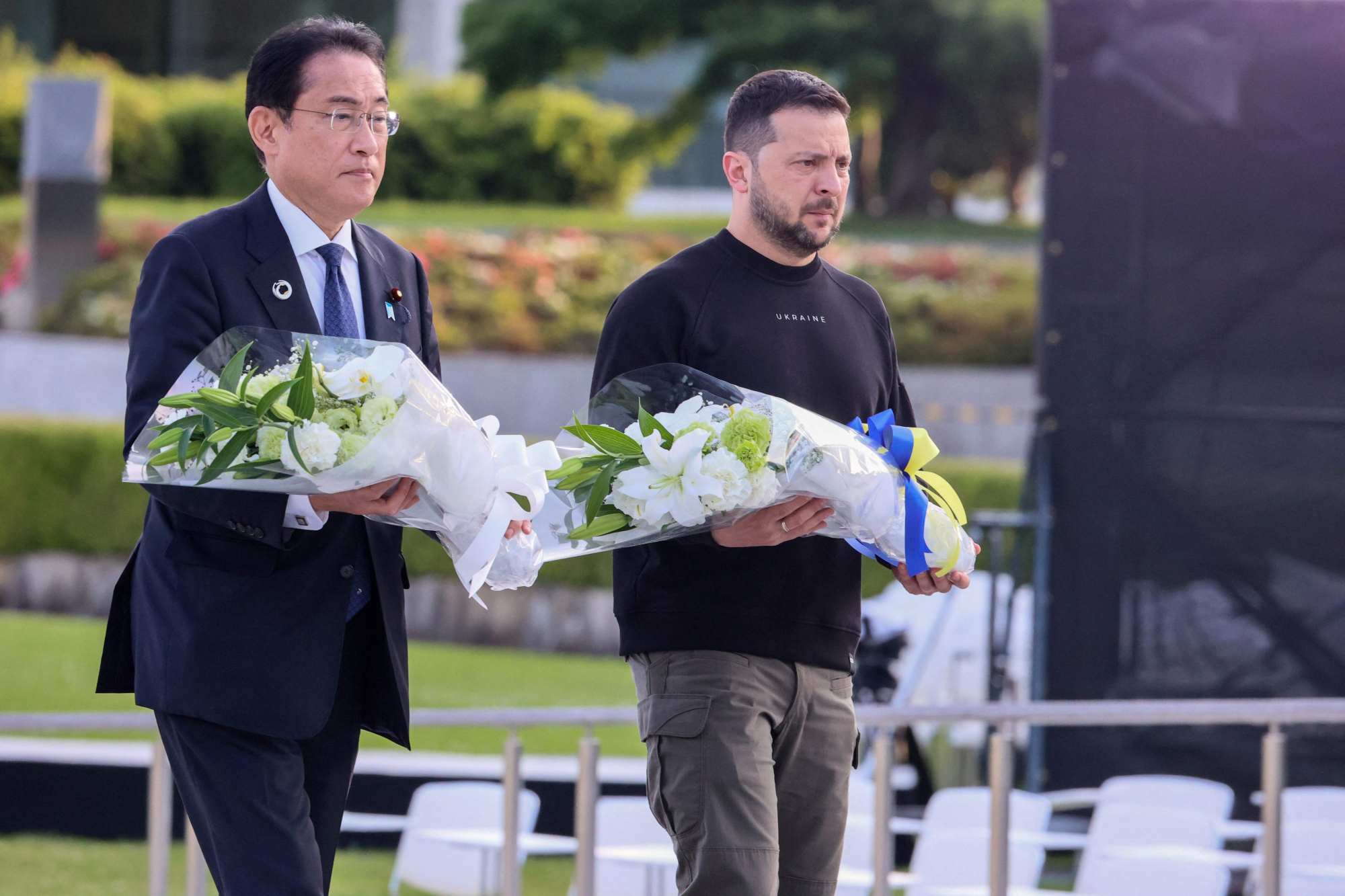
Ukraine’s Zelensky wins new diplomatic, military support from G7, including US$375 million from US
- President Volodymyr Zelensky’s surprise trip to Japan has been a major diplomatic coup, putting his country and Russia’s invasion at the top of the agenda
- The visit also afforded Zelensky a rare opportunity to win over a handful of nations that offered little or no condemnation of Russia’s invasion
President Volodymyr Zelensky secured more arms, munitions and “unwavering” diplomatic support from G7 allies in Hiroshima Sunday.
Meeting leaders from a bloc of rich democracies, Zelensky won a commitment from US President Joe Biden to provide further military aid worth US$375 million.
Top Zelensky aide Andriy Yermak said the US package included additional ammunition for HIMAR rocket launchers, artillery shells, anti-tank guided missiles and thermal imaging systems worth US$375 million.
“Together with the entire G7, we have Ukraine’s back and I promise we’re not going anywhere,” Biden told Zelensky.
Ukraine clarifies Zelensky’s comments on status of Bakhmut: ‘It is not occupied by Russia’
Zelensky’s surprise trip to Japan has been a major diplomatic coup, putting his country and Russia’s 15-month-long invasion firmly at the top of the agenda.
Zelensky’s invitation to visit Hiroshima, a city synonymous with the horrors of nuclear war, was a “deeply meaningful” symbol of support, according to host Fumio Kishida, Japan’s prime minister.
“By inviting President Zelensky to Japan, we demonstrated the unwavering solidarity of G7 with Ukraine,” he said.
Following the end of the G7 summit in Japan, Zelensky paid a visit to the Peace Museum in Hiroshima, where a Memorial stands to commemorate the hundreds of thousands who died in the atomic bombing of 1945.

Over 300,000 people died after the US Air Force dropped an atomic bomb on Hiroshima on August 6, 1945. Today, the Japanese city is considered a strong symbol against the terrors of war – and a reminder for peace.
As well as securing backing from allies, the visit afforded Zelensky a rare opportunity to win over a handful of nations who have pointedly offered little or no condemnation of Russia’s invasion.
Leaders from India, Brazil, Vietnam and Indonesia were among those invited to attend the summit as non-members.
Brazil’s President Luiz Inacio Lula da Silva has accused the West of “encouraging the war” and is yet to confirm he will even meet his Ukrainian counterpart.
The reception was warmer however from India’s Prime Minister Narendra Modi, who told Zelensky: “I understand your pain and the pain of Ukrainian citizens very well.”
“I can assure you that to resolve this India and, me personally, will do whatever we can do.”
Zelensky offered an upbeat assessment of the encounter, saying he believed India “will participate in the restoration of the rules-based international order that all free nations clearly need.”
Zelensky is also looking for support for a 10-point peace plan, centred on the demand that Russia retreat from Ukrainian territory.
Biden backs F-16 training for Ukrainian pilots
German Chancellor Olaf Scholz said the message from Ukraine and its allies was clear: “Russia must withdraw troops”.
Any peace plan, he said, “can’t simply be linked to a freeze of the conflict”.
“Russia should not bet that if it holds out long enough, it will end up weakening support for Ukraine.”
French President Emmanuel Macron said he hoped President Zelensky’s attendance at the gathering would help countries like Brazil and India better understand Ukraine’s situation.
He referred to an upcoming meeting of the BRICS countries, namely Brazil, Russia, India, China and South Africa. “This is very important for us because it prevents a division of the world – between those who clearly support Ukraine and those who say they support peace, sometimes without knowing what exactly that means.”

Zelensky had previously been scheduled to attend the G7 summit remotely but arrived on the back of a major breakthrough in his battle to wrest advanced weaponry from the West.
The White House dropped its long-standing reluctance to allow allies to supply Kyiv with F-16 fighter jets, opening the way for Ukraine to receive its most sophisticated material yet.
Washington insisted the aircraft were part of a US strategy to support Ukraine “in a way that avoids World War III”, and deflected criticism that their decision was too long coming.
Zelensky acknowledged the jets would not help the war effort immediately but hailed the decision as “a great result”.
Additional reporting by dpa

.png?itok=arIb17P0)